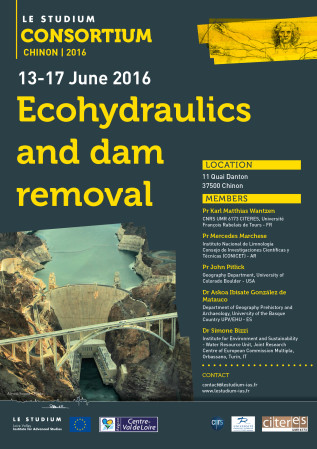Ecohydraulics and dam removal
11 Quai Danton
37500 Chinon
France
Presentation
The decline of the ecological integrity in rivers is a global problem, menacing water security for human beings and biodiversity at the same time. While there are great achievements concerning technologies for water quality improvement, the re-establishment of physical structures suitable for ecosystem functions remains a scientific problem. Which kind of river management and engineering can re-establish these conditions? Specifically, the issue of dam removal is currently in the focus of debate to improve the ecological continuity for sediment transport and migratory organisms. In France alone, about 60,000 obsolete weirs and dams have been identified. However, the scientific baseline for this activity is still weak. In the context of the UNESCO Chair (Fleuve et Patrimoine), the consortium gathers scientists from Europe (France, Spain, Germany), Latin and North America (Argentina, USA) to review the state of the art and to develop new scientific approaches for evidence-based policies. Researchers and engineers from the University of Tours have been studying the quantitative geophysical (sediment transport and morphology) and biological (abundances of benthic invertebrates and fish) effects of dam removal at the Maisons Rouges Dam (Vienne River) since 1998 on an annual basis. The Spanish-Italian team has monitored a large number (>20) dam removals in the past ten years and that of the USA is well-known for their work on geomorphology, endangered fish habitats and algae biomass in the Upper Colorado River. The Argentinian team has recently provided excellent studies on invertebrate-flow relationships. Gathering this expertise from different disciplines and the comparison of a one-site-long-term study with a many-sites-shortterm study will create an excellent setting to improve our knowledge about physical habitat management in rivers. The results of a series of workshops will be published and policy options will be debated in public.






